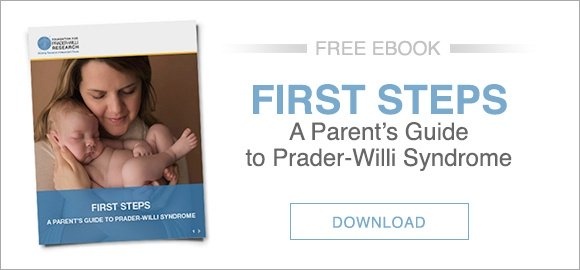We know that mental health is a critical part of quality of life for all individuals with PWS, and something every family wants to improve for their loved one with PWS. Two exciting projects below offer opportunities to contribute to PWS mental welllness research by participating remotely by web-based platforms, and phone interviews. The first study is developing a game to improve task-switching and reduce temper outbursts in PWS, and is aimed at children with PWS. The second study aims to better understand the risk factors and warning signs for mental illness in PWS, and is open to participants who are 12-50 years old.
FPWR is committed to expanding our understanding in understudied areas of mental health in PWS, but we need your help! It's only through patient participation that we can understand some of these difficult challenges, and design solutions to reduce the burden of behavioral problems and mental illness in PWS.
These projects directly address some of the highest priorities in mental health, identified by families and by experts at the Mental Health Strategy Workshop in 2015. The Global PWS Registry is also a critical resource for better understanding of mental wellness in PWS. Regarding temper outbursts and psychosis specifically, >70% of participants in the registry have trouble with transitions "out of routine", and ~10% of individuals that completed the mental health survey have experienced a pyschotic episode. In addition to considering the studies below, please be sure to enroll in the Global PWS Registry and make your voice heard.
TASTER Project (Ages 6 and Older) — Dr. Kate Woodcock
The first study, funded in part by FWPR, is by Dr. Kate Woodcock at The TASTER project, based at Queen's University Belfast. Dr. Woodcock writes, "We know that individuals with Prader-Willi syndrome have particular difficulties with a brain process called 'task switching' or 'attention switching'. These difficulties are linked to the emotional upset and behaviours such as temper outbursts that individuals can show when things change in their routines or plans." Dr. Woodcock's group has developed a video game to train tasking switching, specifically for children with PWS. Initial results are promising and they are currently working to improve the game prototype with input from the PWS community.
If you are the parent or carer of someone with PWS 6 years or over who would like to take part in the research, please contact the TASTER Project. You can take part from anywhere in the world. More information on the TASTER Project can be found here.
Cognition and Behavior in PWS (Ages 12–50) and Behavior in PWS — Dr. Carrie Bearden
This study, being conducted at the University of California, Los Angeles, is investigating cognition and behavior in PWS to improve mental health outcomes for those with PWS. There is increasing evidence of higher rates of psychosis in the PWS population as compared to the general public. However, little is known about the early phase or risk factors that may predect the onset of psychosis. Characterizing this warning or "prodromal" phase is critical to earlier intervention and improved mental health outcomes. Dr. Bearden's group is using a web-based approach to assess multiple domains of cognition (such as learning, memory and processing speed) and social cognition. This information will help define cognitive profiles that characterize PWS patients most vulnerable to psychosis.
You can participate if you yourself have Prader-Willi Syndrome, or if you are the parent of a person between the ages of 12 and 50 with PWS. Participation may take up to an hour and a half. There is no travel required as the study is web-based, which means that you will be asked to complete online clinical and neurocognitive forms. If you have any questions about this research study, please call Laura Pacheco at 310-825-3458 or contact her via email. If you are interested in participating, please complete this form, using Firefox, Google Chrome, Internet Explorer, or Mac Safari as your web browser.








